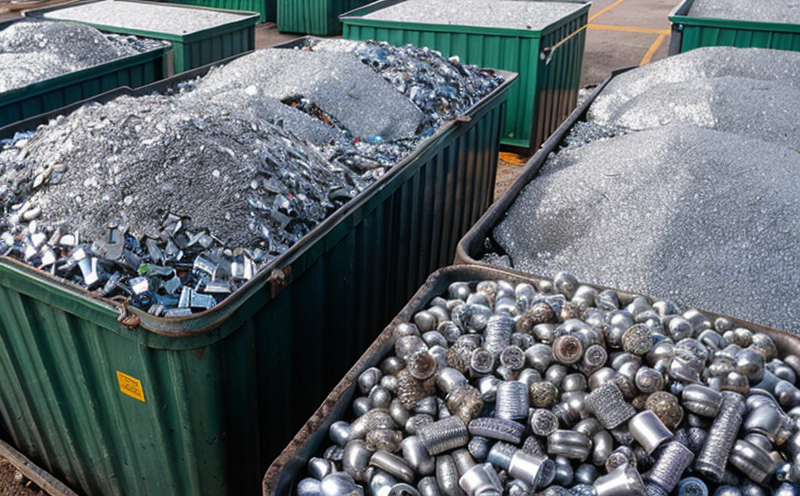ASTM E172 Machinability of Recycled Metal Products
The ASTM E172 method evaluates the machinability of recycled metal products, which is critical for ensuring that metals used in manufacturing meet the same performance standards as their virgin counterparts. This test assesses how easily a material can be cut, drilled, or shaped into specific dimensions without causing undue wear on cutting tools.
The process involves subjecting specimens to standard machining operations such as turning and threading according to specified parameters laid out in ASTM E172. The quality of the machined parts is then assessed based on criteria including surface finish, dimensional accuracy, and tool life. By measuring these factors, manufacturers can determine if recycled metals are fit for use in their production processes.
Recycling metals presents unique challenges not present with virgin materials because the chemical composition may vary due to impurities or alloying elements from different sources. Testing ensures that any potential issues do not compromise product quality or performance during critical stages like manufacturing. Compliance with ASTM E172 helps ensure consistency across batches and suppliers, supporting sustainable practices while maintaining high standards.
Compliance with this standard is particularly important for industries relying heavily on recycled materials such as automotive manufacturers who need reliable machinability data from scrap metals to produce parts efficiently without compromising safety or durability. Additionally, aerospace companies benefit from knowing that their suppliers adhere to rigorous testing protocols when providing recycled aluminum alloys used in airframe structures.
Understanding the machinability of recycled metal products is essential for optimizing production processes and reducing waste generation within facilities dedicated to recycling operations. Accurate assessment allows firms to make informed decisions about which grades of scrap should be processed further into finished goods, thereby maximizing resource efficiency and environmental impact reductions.
- International Acceptance: ASTM E172 is widely recognized globally for its robust methodology in assessing machinability. It provides a consistent framework that allows manufacturers to compare results across borders easily.
- Compliance Benefits: Adhering to this standard helps organizations meet regulatory requirements and industry specifications, enhancing their reputation among customers who value quality assurance.
Eurolab Advantages
Eurolab prides itself on delivering comprehensive metal testing services tailored specifically towards meeting the needs of various sectors including automotive, aerospace, construction, and electronics. Our team of experts ensures that every sample undergoes thorough analysis using advanced equipment calibrated according to international standards.
- Expertise: With years of experience in metal testing, Eurolab's team comprises highly skilled professionals who stay updated on the latest developments within the field. They possess deep knowledge about different types of recycled metals and their properties, enabling precise evaluations.
- Technology: Leveraging state-of-the-art technology ensures accurate measurement and interpretation of results. Our facilities house some of the most sophisticated instruments available today, allowing us to offer reliable data.
Why Choose This Test
Selecting ASTM E172 for evaluating recycled metal products offers numerous advantages over other methods. Firstly, it provides a standardized approach that guarantees consistency and comparability of results worldwide. Secondly, compliance with this standard demonstrates commitment to quality and reliability, building trust among stakeholders. Thirdly, using established protocols like ASTM E172 helps identify potential challenges early in the supply chain process, preventing costly rejections later on.
Moreover, adhering to such tests fosters innovation by encouraging continuous improvement in processes aimed at enhancing machinability of recycled materials. This drives down costs associated with scrap handling and processing while promoting sustainable practices that align with corporate social responsibility goals.





